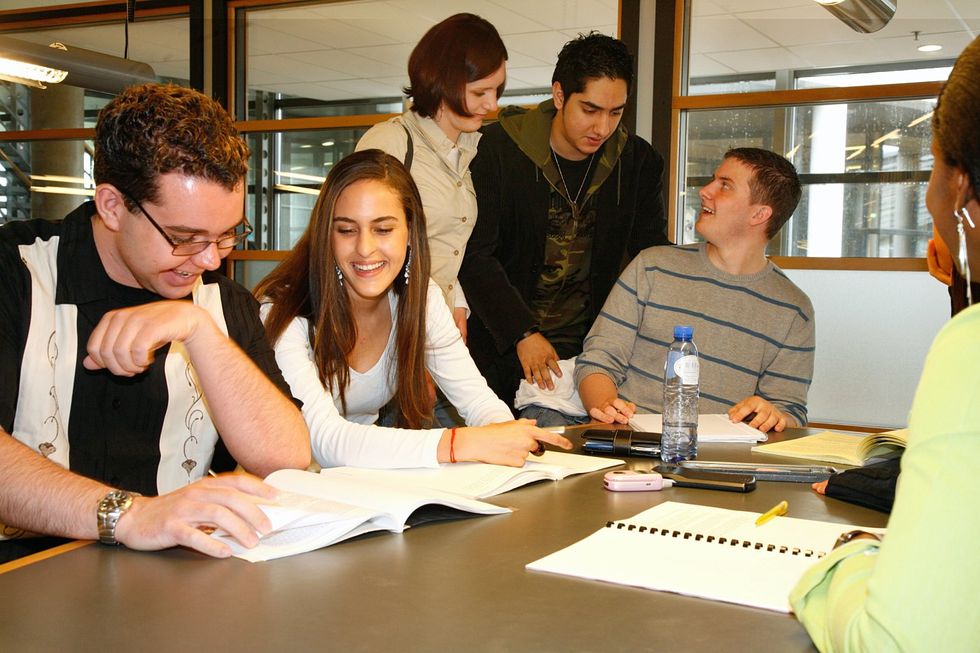To be honest, my study habits took quite a while to develop. It was a long frustrating journey, and one I’m still working on. Also, as a disclaimer, not all of the methods I’m going to list are a fool proof guide to a 100 on every exam you take. Yet they are the most effective and proven ways to study, and I think every student should give them a shot and fit them into their studying routine as you please. Enjoy!
Be the teacher
One of my favorite study tips is to study not as if you’re going to take the test, but as if you’re going to teach the subject yourself. You can practice this method by finding a person that doesn’t know much about the material you’re working on and explaining it to them. The more that person understands, the more you probably know the material. Or if you don’t have someone to practice with, talk things out with yourself. Pretend that you’re giving a TedTalk and explain the concept you need to learn. Develop the mindset of being the master of the material you’re learning and passing your knowledge to others.
Peekaboo
I like to call this method the “peekaboo” method because it really is like playing peekaboo with your notes. It essentially is forced recall. Take small portions of your notes and read over them. Then force yourself to rewrite your notes without looking using everything you remember. Check your notes to see if you forgot anything and make note of it. This method will force your brain to recall the information you wrote down as opposed to just passively reading over them. Also, if you forgot information when you rewrote the notes initially, you’ll be more likely to remember once you write it out again a second time!
Memorize
Once you have a basic understanding of the material, your focus needs to be placed on basic memorization. This can be done using the peekaboo method and the teacher method I just described. However, for tests that are a bit more vocabulary oriented, flashcards will never hurt. The flashcard method is particularly useful for hashing out lists of vocabulary that need to be memorized for an anatomy or language class perhaps. The flashcard method must be met with caution though, because there are a lot of subjects that require a lot more than just basic memorization but rather deep conceptual understanding and concept application.
Engage
During class, make sure you are engaging with the material. You need to be actively participating in conversation during classes. Don’t be afraid to ask questions, because the question you have might be the question that someone else has as well. The better you learn the material during class, the more effectively you’ll be able to study it. This is also why paper notes might be better than laptop notes, because it minimizes the distractions that might pop up online during class. Plus, people typically type faster than they write thus paper notes force you to focus and make the notes you take a bit more concise as opposed to simply writing down everything the professor says.
Quiz yourself
Another fool proof way to know if you've learned the material or not is to simply quiz yourself. Grab a friend and create practice tests for each other. If you have teachers/professors that give out practice tests before exams USE THEM. And make sure you take the practice tests in the format it will be given in the actual exam. For example, if you know you will have an hour to complete the exam, when you take the practice exam, time it for an hour.
I’ve been using these methods for about a year. They are easy, painless and effective, and I hope they work for you!






















